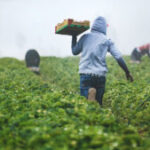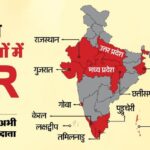On 26 August 2025, Nigeria announced a six-month moratorium on the export of raw shea nuts. By then, we had raised private financing, signed export contracts, and trained our fellow farmers to collect, sort, break, and dry shea kernels, the first semi-processed step before butter. Overnight, working capital lay idle, and shipment deadlines were missed.
A quick note on definitions: Raw shea nuts are the unbroken fruit; Shea kernels are dried, shelled seeds; Shea butter is an extracted fat. The ban targeted nuts, but while it was intended to encourage greater value-addition domestically, it had an impact on operators like us who export kernels to long-established foreign processors.
Nigeria lies on one of the largest shea belts in the world, yet we are under-represented in global shea value chains. The trend of domestic capacity building is correct. But timing and execution matter. By mid-June (mid-season for us), processor quotas, budgets, and offtake plans were already locked. At that time there was no practical pivot to domestic processors without breaking other contracts.
This is not the first time Nigeria has tried to operate the market with tight barriers. From the Hides and Skins Framework (1940) to land-border closures in 2019-20 to the maize-export decriminalization bill due in late 2024, the logic is familiar: keep raw materials at home, fight leakage, and build local industry. But the reasons for the poor performance of the sudden export restrictions have not changed:
1) We have production problem: Our yields are significantly lower than our competitors because most production is led by smallholders and the underserved. Grants and NGO projects help at the margin, but scale requires climate-friendly expansion, drying/quality infrastructure and reliable aggregation.
2) We have financial problem: There remains a shortage of suitable working capital. Major schemes that were supposed to fill the gap (for example, the Anchor Borrower Scheme) faltered in terms of administration and recovery. Cheap debt without discipline, raising and enforcement is not finance.
3) We have an incentive problem: When cross-border payments arbitrate and borders are porous, blanket restrictions stifle trade rather than develop it. Informal traders revolve around policy; Formal operators eat friction.
At AK Collective, we built around those realities: a lean, farmer-led model where women's cooperatives act as primary processors and community aggregators. This keeps overheads low, quality high and local impact real. With a small effort in Shea this season, partner income increased up to 4 times for women who had left Shea business for a long time. Despite policy makers' expectations, the sudden shea ban did not lead to a sudden change in butter-making within these communities. Without guaranteed buyers, equipment and working capital, asking rural women to “process more” is not a plan.
What change in policy will happen without breaking the operators in mid-season?
● Timed transition: Announcing a pre-season ban with a dated glide path; Grandfather already contracted volume.
● Clarify the scope: Nuts that meet domestic value-added thresholds (e.g., moisture, FFA specifications) are exempted, while exports of unprocessed nuts are still discouraged.
● Processor Certification and Quotas: Prefer domestic processors with verifiable capability; Allocate transitional quotas for exporters linked to local offtake commitments.
● Season-fit working capital: Create an accountable SME window (not a grant) linked to delivery and quality metrics; Pay rural women processing groups on acceptance, not hope.
● Limit discipline that targets leakage, not compliance. Focus enforcement on high-risk corridors and known arbitrage, not on operators with mapped farms and traceable lots.
Nigeria must become a hub for value-added shea. But we get there by matching policy timing with the seasonal economy, supporting operators who are already implementing, and aligning incentives so that the formal route wins. Otherwise, we freeze out the supply chains we need to make the processors we want.
AK Collective will continue to do what works: training, traceability, moisture-controlled drying, and cooperative-led aggregation, so that when the market is ready for more processing in the country, our partners will be ready, too.










